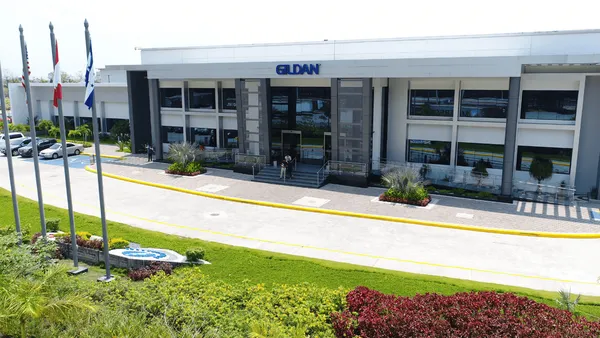Dive Brief:
- The Nordstrom family is close to making an offer to take the department store chain named after them private, Reuters reports. A Nordstrom family spokesperson told Retail Dive in an email that there was, "No update!"
- The family group looking to buy out Nordstrom's shareholders met with investment banks in recent weeks and "is hoping to submit an offer as early as next month once the banks get approval from their credit committees to provide the financing," according to Reuters, which cited unnamed sources and could not obtain details on the offer.
- The group was reportedly near to a take-private deal last fall, but the effort was derailed when the group could not obtain financing. The Nordstrom family group resumed talks this year.
Dive Insight:
A possible deal to take Nordstrom private could shelter the company from Wall Street's bearish outlook on retail, which was actually the thing that killed the deal last year, as financiers became wary of retail deals following the unexpected bankruptcy of Toys R Us.
In September, reports surfaced that the family group — which included company co-presidents Blake Nordstrom, Peter Nordstrom and Erik Nordstrom, as well as President of Stores James Nordstrom, Chairman Emeritus Bruce Nordstrom and Anne Gittinge — was closing in on a deal with private equity firm Leonard Green & Partners to help fund a go-private transaction.
But by early October, those talks were said to be "in deep trouble" amid issues with raising financing. Bringing in a private equity partner was in part a way to fund a deal without taking on large amounts of debt with high interest rates attached — the latter a symptom of Wall Street's darkening view of brick-and-mortar retail in a year of recession-level bankruptcies for the sector.
Members of the Nordstrom family announced in June they were considering taking the company private. By late July, the group was negotiating with potential private equity partners for a possible deal. Erich Joachimsthaler, CEO of growth strategy firm Vivaldi, told Retail Dive at the time of the initial announcement that going private was a smart play for the company.
"Nordstrom goes private in order to massively restructure its business which is impossible as a public company. It is the right move," Joachimsthaler said. "Either you disrupt or you are the disrupted. As a public company with the asset heaviness of the department store business and low margins, they cannot disrupt. This is the precursor of massive changes in retailing." Mark Cohen, director of retail studies at Columbia University's Graduate School of Business, said of the announcement, "Going private, assuming it did not entail taking on a crushing level of debt, may very well be the best thing that could happen to Nordstrom."
A go-private deal could give Nordstrom a longer timeline to reinvent its business for the modern retail climate. It could also preempt an activist rebellion, such as those some fellow department store chains —including Hudson's Bay Company, Macy's and Dillard's, among others — have been fending off.
The company's net sales rose 2.5% and same-store sales increased 1.2% for the nine holiday weeks of November and December ended Dec. 30. The gains reflect an improvement in both Nordstrom full-line and off-price Nordstrom Rack stores, as well as growth in e-commerce.
Nordstrom, trying to shake off the challenges to its sector, has been experimenting with various retail structures including pop-up spaces and a merchandise-free concept store in West Hollywood, CA, and other experimental retail concepts.














